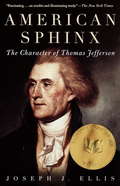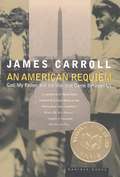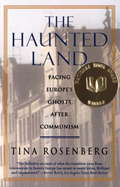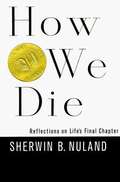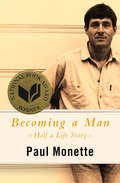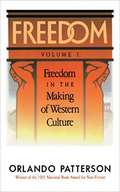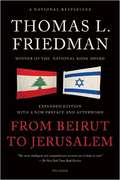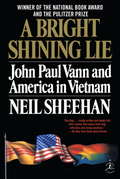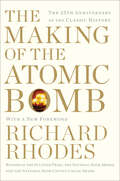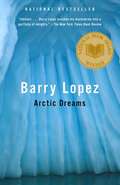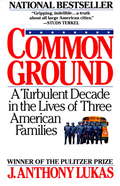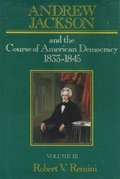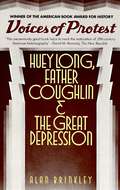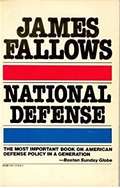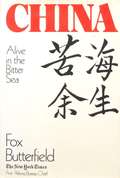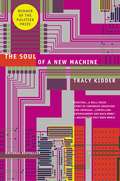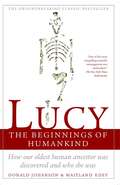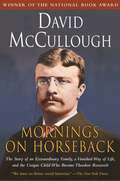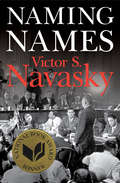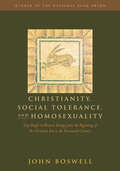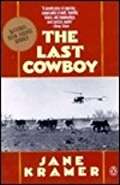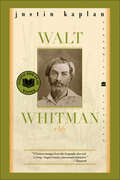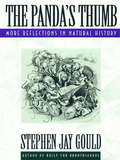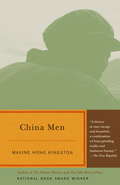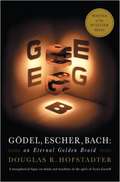Special Collections
National Book Award Winners - Non-Fiction
- Table View
- List View
American Sphinx
by Joseph J. EllisFor a man who insisted that life on the public stage was not what he had in mind, Thomas Jefferson certainly spent a great deal of time in the spotlight--and not only during his active political career. After 1809, his longed-for retirement was compromised by a steady stream of guests and tourists who made of his estate at Monticello a virtual hotel, as well as by more than one thousand letters per year, most from strangers, which he insisted on answering personally. In his twilight years Jefferson was already taking on the luster of a national icon, which was polished off by his auspicious death (on July 4, 1826); and in the subsequent seventeen decades of his celebrity--now verging, thanks to virulent revisionists and television documentaries, on notoriety--has been inflated beyond recognition of the original person.
For the historian Joseph J. Ellis, the experience of writing about Jefferson was "as if a pathologist, just about to begin an autopsy, has discovered that the body on the operating table was still breathing." In American Sphinx, Ellis sifts the facts shrewdly from the legends and the rumors, treading a path between vilification and hero worship in order to formulate a plausible portrait of the man who still today "hover[s] over the political scene like one of those dirigibles cruising above a crowded football stadium, flashing words of inspiration to both teams." For, at the grass roots, Jefferson is no longer liberal or conservative, agrarian or industrialist, pro- or anti-slavery, privileged or populist. He is all things to all people. His own obliviousness to incompatible convictions within himself (which left him deaf to most forms of irony) has leaked out into the world at large--a world determined to idolize him despite his foibles.
From Ellis we learn that Jefferson sang incessantly under his breath; that he delivered only two public speeches in eight years as president, while spending ten hours a day at his writing desk; that sometimes his political sensibilities collided with his domestic agenda, as when he ordered an expensive piano from London during a boycott (and pledged to "keep it in storage"). We see him relishing such projects as the nailery at Monticello that allowed him to interact with his slaves more palatably, as pseudo-employer to pseudo-employees. We grow convinced that he preferred to meet his lovers in the rarefied region of his mind rather than in the actual bedchamber. We watch him exhibiting both great depth and great shallowness, combining massive learning with extraordinary naïveté, piercing insights with self-deception on the grandest scale. We understand why we should neither beatify him nor consign him to the rubbish heap of history, though we are by no means required to stop loving him. He is Thomas Jefferson, after all--our very own sphinx.
Winner of the National Book Award
An American Requiem
by James CarrollNational Book Award winner: This story of a family torn apart by the Vietnam era is &“a magnificent portrayal of two noble men who broke each other&’s hearts&” (Booklist). James Carroll grew up in a Catholic family that seemed blessed. His father, who had once dreamed of becoming a priest, instead began a career in J. Edgar Hoover&’s FBI, rising through the ranks and eventually becoming one of the most powerful men in the Pentagon, the founder of the Defense Intelligence Agency. Young Jim lived a privileged life, dating the daughter of a vice president and meeting the pope—all in the shadow of nuclear war, waiting for the red telephone to ring in his parents&’ house. James fulfilled the goal his father had abandoned, becoming a priest himself. His feelings toward his father leaned toward worship as well—until the tumult of the 1960s came between them. Their disagreements, over Martin Luther King, Jr. and the civil rights movement; turmoil in the Church; and finally, Vietnam—where the elder Carroll chose targets for US bombs—began to outweigh the bond between them. While one of James&’s brothers fled to Canada, another was in law enforcement ferreting out draft dodgers. James, meanwhile, served as a chaplain at Boston University, protesting the war in the streets but ducking news cameras to avoid discovery. Their relationship would never be the same again. Only after Carroll left the priesthood to become a writer, and a husband with children of his own, did he begin to understand fully the struggles his father had faced. In An American Requiem, the New York Times bestselling author of Constantine&’s Sword and Christ Actually offers a benediction, in &“a moving memoir of the effect of the Vietnam War on his family that is at once personal and the story of a generation . . . at once heartbreaking and heroic, this is autobiography at its best&” (Publishers Weekly).
The Haunted Land
by Tina RosenbergThe Haunted Land is a look at how four newly democratic eastern European nations are dealing with the memories of forty years of communism. As one official orthodoxy replaces another, the people and governments of Germany, Poland, the Czech Republic, and Slovakia face ethical dilemmas as complex and wrenching as anything out of Kafka or Orwell. In the greatest moral drama of our time, Communist totalitarianism drew well-intentioned, even idealistic people into horrible crimes. Now, as formerly Communist nations attempt to atone for the past, there is the everpresent temptation to rewrite history to suit the demands of the present. Tina Rosenberg s journalistic triumph is to put a human face on the abstractions of intrigue and betrayal, memory and ideology. The stories in this book take place not just in the highest councils of government and courts of law, but also in smoky pubs and the most private chambers of the soul. The Haunted Land shows how people struggle with their own definitions of guilt as they learn their betrayers were their husbands, fathers, and best friends.
Winner of the Pulitzer Prize.
Winner of the National Book Award
How We Die
by Sherwin B. NulandAttempting to demythologize the process of dying, Nuland explores how we shall die, each of us in a way that will be unique. Through particular stories of dying--of patients, and of his own family--he examines the seven most common roads to death: old age, cancer, AIDS, Alzheimer's, accidents, heart disease, and strokes, revealing the facets of death's multiplicity. "It's impossible to read How We Die without realizing how earnestly we have avoided this most unavoidable of subjects, how we have protected ourselves by building a cultural wall of myths and lies. I don't know of any writer or scientist who has shown us the face of death as clearly, honestly and compassionately as Sherwin Nuland does here."--James Gleick.
*** Originally published in 1994 and on the New York Times bestseller list for weeks, this reprint includes an in-depth 2010 post-epilogue epilogue by the author.
Winner of the National Book Award
Becoming a Man
by Paul MonetteThe National Book Award–winning coming-out memoir. &“One of the most complex, moral, personal, and political books to have been written about gay life&” (LA Weekly). Paul Monette grew up all-American, Catholic, overachieving . . . and closeted. As a child of the 1950s, a time when a kid suspected of being a &“homo&” would routinely be beaten up, Monette kept his secret throughout his adolescence. He wrestled with his sexuality for the first thirty years of his life, priding himself on his ability to &“pass&” for straight. The story of his journey to adulthood and to self-acceptance with grace and honesty, this intimate portrait of a young man&’s struggle with his own desires is witty, humorous, and deeply felt. Before his death of complications from AIDS in 1995, Monette was an outspoken activist crusading for gay rights. Becoming a Man shows his courageous path to stand up for his own right to love and be loved. This ebook features an illustrated biography of Paul Monette including rare images and never-before-seen documents from the Paul Monette papers of the UCLA Library Special Collections.
Freedom in the Making of Western Culture
by Orlando PattersonThe projected two-volume history of freedom traces the evolution of freedom from Greece in the sixth and fifth centuries BC through the permutations wrought by imperial Rome and the Middle Ages. Unsurprisingly, the Jamaican- born Patterson, long-concerned with the problems of oppression in both his early novels and later analytic studies, is particularly good on the relationship between the birth of freedom and the institution of slavery.
Winner of the National Book Award
From Beirut to Jerusalem
by Thomas L. Friedman"Friedman, who twice garnered the Pulitzer as a New York Times correspondent in Lebanon and Israel, further delineates the two countries in this provocative, absorbing memoir cum political and social analysis. A condensed, incisive history of the Middle East is proffered, as well as personal reflections on his 10-year sojourn: the issue of Friedman's Jewishness in Beirut, the fact that he was the Times 's first Jewish reporter in Israel, the bombing of his apartment in Beirut by the PLO, which took the lives of his Lebanese news assistant's children." -From Publishers Weekly
Winner of the National Book Award
A Bright Shining Lie
by Neil SheehanOutspoken and fearless, John Paul Vann arrived in Vietnam in 1962, full of confidence in America's might and right to prevail. A Bright Shining Lie reveals the truth about the war in Vietnam as it unfolded before Vann's eyes: the arrogance and professional corruption of the U.S. military system of the 1960s, the incompetence and venality of the South Vietnamese army, the nightmare of death and destruction that began with the arrival of the American forces. Witnessing the arrogance and self-deception firsthand, Vann put his life and career on the line in an attempt to convince his superiors that the war should be fought another way. But by the time he died in 1972, Vann had embraced the follies he once decried. He went to his grave believing that the war had been won.
A haunting and critically acclaimed masterpiece, A Bright Shining Lie is a timeless account of the American experience in Vietnam–a work that is epic in scope, piercing in detail, and told with the keen understanding of a journalist who was actually there. Neil Sheehan' s classic serves as a stunning revelation for all who thought they understood the war.
Winner of the Pulitzer Prize.
Winner of the National Book Award
The Making of the Atomic Bomb
by Richard Rhodes**Winner of the Pulitzer Prize, the National Book Award, and the National Book Critics Circle Award** The definitive history of nuclear weapons—from the turn-of-the-century discovery of nuclear energy to J. Robert Oppenheimer and the Manhattan Project—this epic work details the science, the people, and the sociopolitical realities that led to the development of the atomic bomb.This sweeping account begins in the 19th century, with the discovery of nuclear fission, and continues to World War Two and the Americans’ race to beat Hitler’s Nazis. That competition launched the Manhattan Project and the nearly overnight construction of a vast military-industrial complex that culminated in the fateful dropping of the first bombs on Hiroshima and Nagasaki.Reading like a character-driven suspense novel, the book introduces the players in this saga of physics, politics, and human psychology—from FDR and Einstein to the visionary scientists who pioneered quantum theory and the application of thermonuclear fission, including Planck, Szilard, Bohr, Oppenheimer, Fermi, Teller, Meitner, von Neumann, and Lawrence. From nuclear power’s earliest foreshadowing in the work of H.G. Wells to the bright glare of Trinity at Alamogordo and the arms race of the Cold War, this dread invention forever changed the course of human history, and The Making of The Atomic Bomb provides a panoramic backdrop for that story. Richard Rhodes’s ability to craft compelling biographical portraits is matched only by his rigorous scholarship. Told in rich human, political, and scientific detail that any reader can follow, The Making of the Atomic Bomb is a thought-provoking and masterful work.
Arctic Dreams
by Barry Holstun LopezThis National Book Award winner examines the Far North - its terrain, wildlife, and history of the Eskimo natives and intrepid explorers who arrived on its icy shores. What turns this compendium of biology, anthropology and history into a breathtaking study of profound originality is Lopez's unique meditation on how the landscape can shape our imagination, desires and dreams.
Common Ground
by J. Anthony LukasTwo working-class families and a middle-class family in Boston are portrayed, starting with Martin Luther King Jr's assassination.
Winner of the Pulitzer Prize.
Winner of the National Book Award
Andrew Jackson and the Course of American Democracy 1833-1845
by Robert V. ReminiVolume III of Robert V. Remini's biography of Andrew Jackson.
Winner of the National Book Award
Voices of Protest
by Alan BrinkleyThis is a book about two remarkable men--Huey P. Long, a first-term United States Senator from the red-clay, piney-woods country of northern Louisiana; and Charles E. Coughlin, a Catholic priest from an industrial suburb near Detroit. From modest origins, they rose together in the early years of the Great Depression to become the two most successful leaders of national political dissidence of their era.
Winner of the National Book Award
National Defense
by James FallowsTHIS BOOK is designed to give the general reader better ways of thinking about defense. In the first few years of the 1980s, the United States will have to make choices of enormous consequence about the size, purpose, and composition of its military force. These include whether to restore the draft, build new nuclear missiles and bombers, enlarge the Navy, equip a "rapid deployment force" for intervention overseas.
Winner of the National Book Award
China
by Fox ButterfieldIn 1979 Fox Butterfield became the first New York Times correspondent in China in 30 years. He wrote this book about his experiences during the two years he was a correspondent there.
Winner of the National Book Award
The Soul of a New Machine
by Tracy KidderComputers have changed since 1981, when Tracy Kidder memorably recorded the drama, comedy, and excitement of one company's efforts to bring a new microcomputer to market. What has not changed is the feverish pace of the high-tech industry, the go-for-broke approach to business that has caused so many computer companies to win big (or go belly up), and the cult of pursuing mind-bending technological innovations. The Soul of a New Machine is an essential chapter in the history of the machine that revolutionized the world in the twentieth century.
Winner of the National Book Award
Lucy
by Maitland A. Edey and Donald C. JohansenThe dramatic discovery of our oldest human ancestor and the controversial change it makes in our view of human origins
Winner of the National Book Award
Mornings on Horseback
by David McCulloughThe National Book Award–winning biography that tells the story of how young Teddy Roosevelt transformed himself from a sickly boy into the vigorous man who would become a war hero and ultimately president of the United States, told by master historian David McCullough.Mornings on Horseback is the brilliant biography of the young Theodore Roosevelt. Hailed as “a masterpiece” (John A. Gable, Newsday), it is the winner of the Los Angeles Times 1981 Book Prize for Biography and the National Book Award for Biography. Written by David McCullough, the author of Truman, this is the story of a remarkable little boy, seriously handicapped by recurrent and almost fatal asthma attacks, and his struggle to manhood: an amazing metamorphosis seen in the context of the very uncommon household in which he was raised. The father is the first Theodore Roosevelt, a figure of unbounded energy, enormously attractive and selfless, a god in the eyes of his small, frail namesake. The mother, Mittie Bulloch Roosevelt, is a Southerner and a celebrated beauty, but also considerably more, which the book makes clear as never before. There are sisters Anna and Corinne, brother Elliott (who becomes the father of Eleanor Roosevelt), and the lovely, tragic Alice Lee, TR’s first love. All are brought to life to make “a beautifully told story, filled with fresh detail” (The New York Times Book Review). A book to be read on many levels, it is at once an enthralling story, a brilliant social history and a work of important scholarship which does away with several old myths and breaks entirely new ground. It is a book about life intensely lived, about family love and loyalty, about grief and courage, about “blessed” mornings on horseback beneath the wide blue skies of the Badlands.
Naming Names
by Victor S. NavaskyWinner of the National Book Award: The definitive history of Joe McCarthy, the Hollywood blacklist, and HUAC explores the events behind the hit film Trumbo. Drawing on interviews with over one hundred and fifty people who were called to testify before the House Un-American Activities Committee—including Elia Kazan, Ring Lardner Jr., and Arthur Miller—award-winning author Victor S. Navasky reveals how and why the blacklists were so effective and delves into the tragic and far-reaching consequences of Joseph McCarthy&’s witch hunts. A compassionate, insightful, and even-handed examination of one of our country&’s darkest hours, Naming Names is at once a morality play and a fascinating window onto a searing moment in American cultural and political history.
Christianity, Social Tolerance, and Homosexuality
by John BoswellJohn Boswell's study of the history of attitudes toward homosexuality in the early Christian West was a groundbreaking work that challenged preconceptions about the Church's past relationship to its gay members--among them priests, bishops, and even saints--when it was first published twenty-five years ago. The historical breadth of Boswell's research (from the Greeks to Aquinas) and the variety of sources consulted make this one of the most extensive treatments of any single aspect of Western social history. Christianity, Social Tolerance, and Homosexuality, still fiercely relevant today, helped form the disciplines of gay and gender studies, and it continues to illuminate the origins and operations of intolerance as a social force.
Winner of the National Book Award
The Last Cowboy
by Jane KramerPortrays the life of a man who strives to be "a proper cowboy" despite radical changes which have propelled the Old West into a New Southwest characterized by industrialized agribusiness.
'The West that Henry mourned belonged to the Western movie, where the land and the cattle went to their proper guardians and brought a fortune in respect and power. It was a West where the best cowboy got to shoot the meanest outlaw, woo the prettiest schoolteacher, bed her briefly to produce sons, and then ignore her for the finer company of other cowboys - a West as sentimental and as brutal as the people who made a virtue of that curious combination of qualities and called it the American experience.' From the Introduction: Henry Blanton is the 'last cowboy' of Jane Kramer's classic portrait, the failed hero of his own mythology, the man who ends an era for himself. His story - his flawed, funny, and in the end tragic efforts to be a proper cowboy, 'expressin' right' in a world where the range is a feed yard and college boys run ranches from air-conditioned Buicks -is the story of a country coming of age in great promise and greater disappointment. A hundred and fifty miles up the highway from agri-business Amarillo, Henry claimed the extravagant prerogatives of a free man on a horse. He rode his own frontier, decked out in his vigilance and his honour, until the shocking moment when in the person of Henry Blanton the West and the Western had a showdown.
Winner of the National Book Award
Walt Whitman
by Justin KaplanThe Pulitzer Prize and National Book Award-winning author “gives us flesh and blood Whitman in this fine and sensitive biography” (The Boston Globe).A moving, penetrating, sharply focused portrait of America’s greatest poet—his genius, his passions, his androgynous sensibility—an exuberant life entwined with the turbulent history of mid-nineteenth century America. In vivid detail, Justin Kaplan, winner of the Pulitzer Prize and the National Book Award, examines the mysterious selves of this enigmatic man whose bold voice of joy and sexual liberation embraced a growing nation . . . and exposes the quintessential Whitman, that perfect poet whose astonishing verse made “words sing, dance, kiss, copulate” for an entire world to hear.“Whitman emerges from this biography alive and kicking—hugely human, enormously attractive.” —Newsweek“Not only readable, but dramatic.” —The New York Times Book Review“A buoyant, energizing book.” —The Nation“Brilliant.” —Publishers Weekly
The Panda's Thumb
by Stephen Jay GouldWere dinosaurs really dumber than lizards? Why, after ?all, are roughly the same number of men and women born into the world? What led the famous Dr. Down to his theory of mongolism, and its racist residue? What do the panda's magical "thumb" and the sea turtle's perilous migration tell us about imperfections that prove the evolutionary rule? The wonders and mysteries of evolutionary biology are elegantly explored in these and other essays by the celebrated natural history writer Stephen Jay Gould.
Winner of the National Book Award
China Men
by Maxine Hong KingstonThe author chronicles the lives of three generations of Chinese men in America, woven from memory, myth and fact. Here's a storyteller's tale of what they endured in a strange new land.
Winner of the National Book Award
Gödel, Escher, Bach
by Douglas R. HofstadterThis groundbreaking Pulitzer Prize-winning book sets the standard for interdisciplinary writing, exploring the patterns and symbols in the thinking of mathematician Kurt Gödel, artist M.C. Escher, and composer Johann Sebastian Bach.
Winner of the National Book Award
Pulitzer Prize Winner
